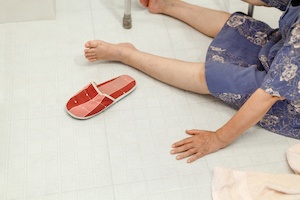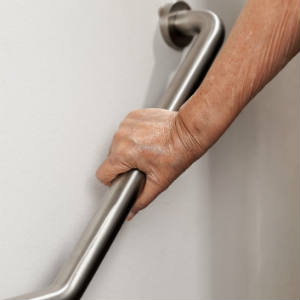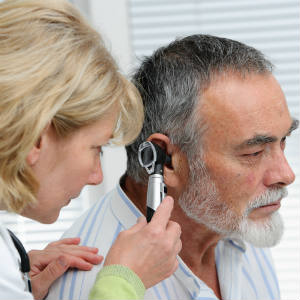According to the National Council on Aging, falls are the leading cause of fatal and non-fatal injuries in older adults. Even if you fall and don’t experience injury, it can impact your life.
Consider this: Falling is a common fear among older adults — whether they’ve experienced a fall or not. While this is a normal fear, leaving the fear of falling unchecked actually can increase your risk of falling as well as diminish your quality of life. If you have a fear of falling, you may find yourself going out less often, being less physically active, or spending less time with family and friends.
But the good news is you can do several things to quell your worries if you are afraid of falling. Let’s look at a few.
Keep up your physical activity level: While it may seem logical to limit your physical activity to prevent falls, doing so can increase your risk of falling. That’s because when you limit your physical activity long enough, you will lose muscle strength, mobility and endurance. Try exercises that increase your flexibility and strength. Tai chi and yoga can improve strength and balance, and a lot of yoga poses can be done while sitting. If you have questions about how to begin a physical activity routine, or have concerns about your gait or strength, talk to your doctor.
Check your medicines and supplements: Some medications and supplements can cause dizziness or affect your balance. Talk to your doctor about medicines and supplements you’re taking and ask if any of the dosages should be adjusted, and when a new medication is suggested to you, ask about any potential side effects that could affect your balance.
Get your vision checked: Vision impairment and the risk for blindness increases with age, according to the National Institutes of Health (NIH). This risk factor for falls is one of the most easily overlooked fall risks because vision impairment or loss often happens slowly and when it does, usually goes unnoticed by older adults.
However, notes the NIH, most vision issues can be corrected easily, and when they are, your risk of falls decreases and mobility improves.
If you haven’t had an eye exam in a while, get one. You may need a new pair of glasses or contact lenses. If you wear bifocals, keep in mind these lenses may impact your ability to safely go up and down stairs or step up onto curb ledges.
Check your shoes: The wrong pair of shoes also can increase your risk of falling. When you shop for shoes, remember:
- Have your foot professionally measured each time you get a new pair of shoes. Aging and health condition can change the size of our feet.
- Bring the socks you want to wear with the shoes you’re buying and wear them as you walk around the store.
- Your shoes should be comfortable and supportive as soon as you put them on. If they’re not, don’t buy them.
The fear of falling doesn’t have to negatively impact your life. Take the steps above to improve your safety and reduce your fears.













